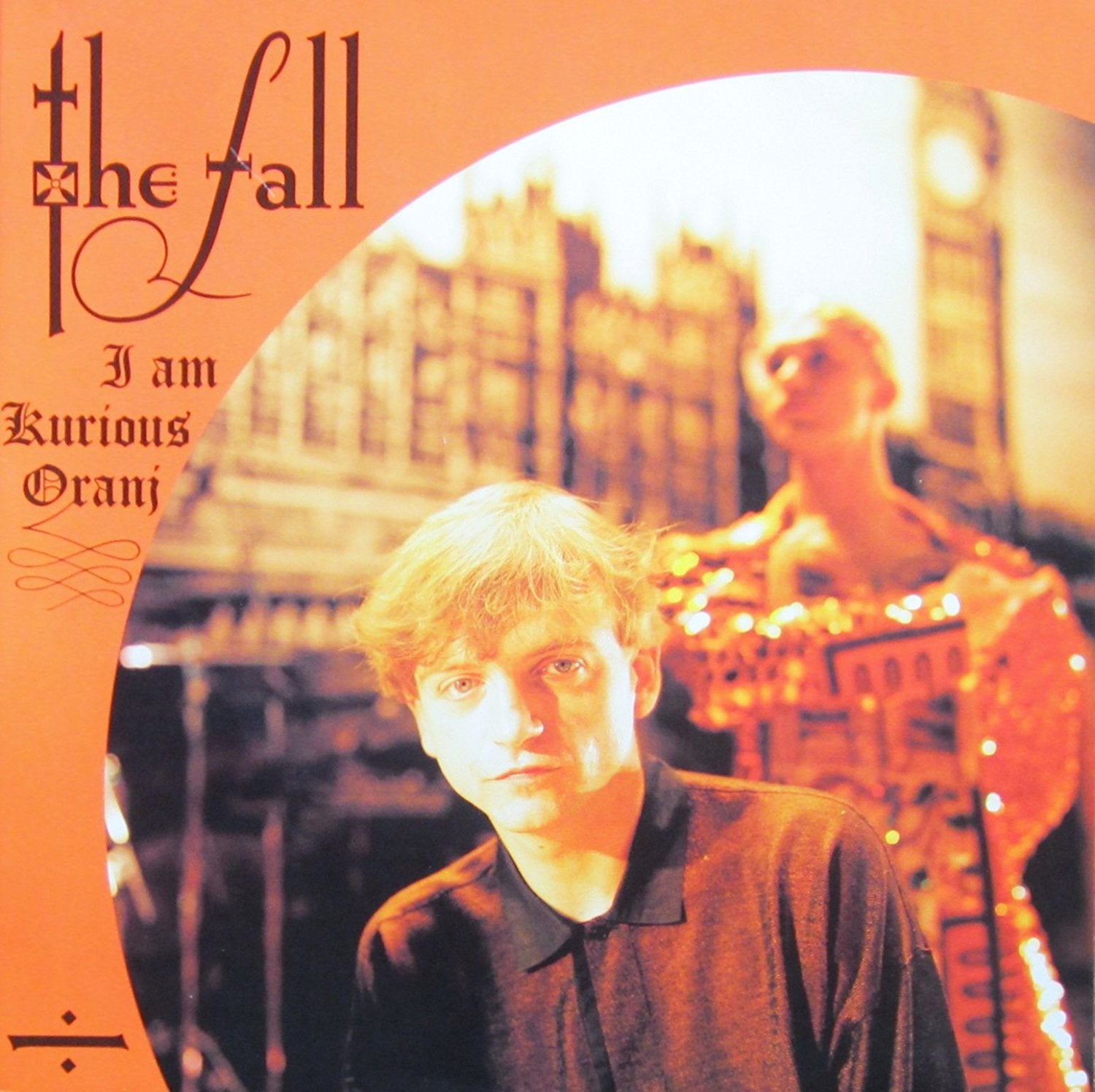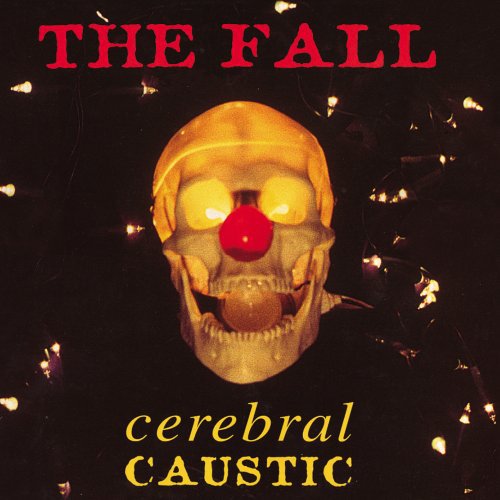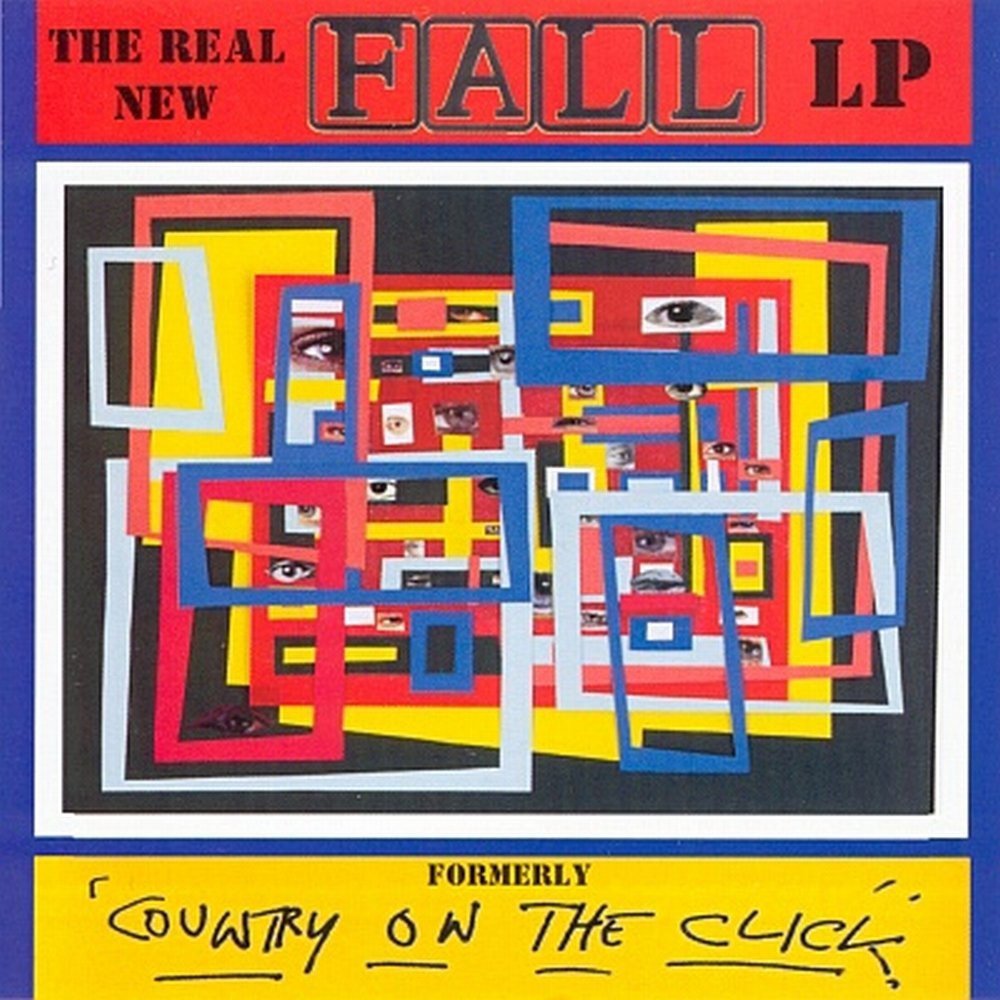De 10 bästa The Fall-albumen att äga på vinyl
RIP Mark E Smith
Mark E. Smith, ledare för The Fall, dog igår vid 60 års ålder. Här kan du återbesöka vår lista över bandets 10 bästa album som skapades för bandets 40-årsjubileum.
This year marked the 40th anniversary of the formation of the Fall. It’s an occasion that’s attracted very little fanfare, least of all from the group themselves. Just as you’d expect, there was no star-studded celebratory concert at the Royal Albert Hall. No career-spanning greatest hits package. No chummy carpool karaoke segment with James “Lesbian Vampire Killers” Corden.
Instead, 2016 was business as usual for Prestwich’s finest. There was an EP released at the beginning of the year, a bunch of gigs in small-to-medium sticky-floored venues, and a handful of festival appearances. They did lose one member in the shape of keyboardist, backing vocalist and occasional lead singer Elena Poulou. Given that the band has evolved with frequent personnel changes governed under the turbulent whims of singer/director/dictator Mark E. Smith, that was pretty much standard practice too. Even if Poulou is Smith’s third wife.
With over thirty studio albums to the Fall’s name and god knows how many singles, EPs, live albums, compilations, semi-official releases and bona fide bootlegs, their discography can be as intimidating as coming face-to-face with a man-sized sentient mutant lizard creature. Incidentally, that’s also what the band’s gargling frontman looks and sounds like these days. In chronological order, here are 10 of the best from four decades of inimitable post-punk prowess.

Live At The Witch Trials (1979)
Formed in Prestwich, Greater Manchester when Mark E. Smith was 19 years old, the Fall were named after the Albert Camus novel and their influences included the Velvet Underground, Can, Captain Beefheart, the Monks and the Stooges. While the group would go on to release many a live album, Live At The Witch Trials was not one of them. The outfit’s studio debut was recorded in just one day and its marriage of leftfield experimentation with garage-rock vigour set the blueprint for the sound that John Peel would later describe as “always different, always the same”.
The LP’s brooding bass lines and scratchy guitar work found suitable accompaniment in Yvonne Pawlett’s friendlier keyboard tones, while Smith’s sardonic rantings about the idiotic world that surrounded him were occasionally structured around such accessibly yell-along choruses as “Rebellious jukebox, yeah!” and “Yeah! Yeah! Industrial estate!” By wearing their literary, local and German influences on their knitted sleeves and ending their debut LP with a misanthropic eight-minute kraut-funk dirge, the Fall immediately established themselves as idiosyncratic post-punk pioneers.

Hex Enduction Hour (1982)
Embittered that his group appeared to be “getting nowhere”, Smith approached the Fall’s fourth album under the nihilistic belief it would be the last thing he’d ever record. This sense of disillusionment informs many of its lyrics, from “Hip Priest”’s mantra of “he is not appreciated” to the direct lambasting of music journalists on “Mere Pseud Mag. Ed.”
However, Smith answered his critics on a whole other level by unveiling his first true masterpiece. Double drummers Karl Burns and Paul Hanley lead the cacophonous rumble under layers of crashing guitars, with the odd blast of banjo, xylophone and also kazoo. Tracks such as “The Classical” and “Deer Park” rattle forward furiously while others are slower, creepier and more measured. Ending Side A by fading out “Winter” and beginning Side B by fading it back in again was one of many inspired moves and if listeners ever got to the bottom of deciphering Smith’s lyrics, there were messages scrawled across the album cover for further obsessive examination.

Perverted By Language (1983)
Perverted By Language marked the debut appearance of Smith’s first wife, the LA expat known as Brix. It would take a little longer for Mrs Smith’s pop leanings to permeate the Fall’s music, when her sartorial nous would also have Mark wearing mascara and fancy leather coats. For the time being, the Fall remained in uncompromising anti-music mode on this slow, scary, strange, surreal and satirical album, packed with lengthy, lumbering bass-driven songs with disturbing cut-up lyrics inspired by life in 1980s England, the shadow of Nazi Germany, Wyndham Lewis and Kellogg’s cereal advertisements.

This Nation’s Saving Grace (1985)
With Brix’s influence increasing, in 1985 the classically trained musician Simon Rogers also joined the Fall’s fold and with This Nation’s Saving Grace came another triumph. It showcased The Fall’s fusion of garage punk, krautrock and “northern rockabilly” in its most approachable form to date as Smith & co. toyed playfully with the notion of pop music, albeit pop music fronted by a curmudgeonly barfly evangelizing about drain pipes and toilet queues.
“Barmy,” “Spoilt Victorian Child,” “Couldn’t Get Ahead” and “My New House” are all infectious little stompers, the latter gleefully celebrating the home that Mark and Brix had recently inhabited. Elsewhere, “I Am Damo Suzuki” praised the ex-singer of Can, and there is a rare air of positivity throughout. The LP still contains its share of weirder, more avant-garde passages, though they’re relatively lean and smoothly rendered by John Leckie’s production. Looking for a single-album introduction to the Fall? This is the recommended place to start. If you require something darker and messier, try 1986’s Bend Sinister.

I Am Kurious Oranj (1988)
This is a curious release to be sure and the most “highbrow” album in the Fall canon. Its music soundtracked a ballet by Michael Clark’s avant-garde dance troupe and is a conceptual work based loosely on William and Mary of Orange’s accession to the English throne 300 years earlier. If that sounds ominously close to something Rick Wakeman might enjoy, don’t worry because you’re in safe hands with the Fall, even if those hands are always holding five pints of lager, two double whiskies and a lit cigarette.
In a fresh and rowdier form “Hip Priest” has been completely reinvented (retitled “New Big Prinz”) as has, of all things, William Blake’s “Jerusalem”. The title track dabbles in bizarre cod reggae, at certain points Craig Scanlon is permitted to strum an acoustic guitar, “C.D. Win Fall 2088 AD” anticipates the electronic experiments and sound collages that would become more prominent in the following decade, and “Cab It Up” is simply catchy as hell. The glorious way Smith repeatedly pronounces the word “orange-ah” is worth the sticker price alone.

Extricate (1990)
Much of Smith’s strongest output has been in the midst or aftermath of personal and professional turmoil. Extricate was the first album to follow his divorce from Brix, the split occurring the same year that Smith’s father died of a sudden heart attack. Brix’s temporary replacement was Martin Bramah, who was last heard on Live At The Witch Trials before leaving to front his own band, Blue Orchids. The resulting album was no regressive retreat to the style of the band’s debut, however. Released on a major and appropriately polished, Extricate found The Fall looking daringly relevant and more melodic than ever with guest musicians decorating their compositions with fiddle, flute, oboe and organ. Its stand-out number is the beautiful “Bill Is Dead”; the closest that the normally unsoppy Smith has ever gotten to penning a universal, heartstring-tugging ballad. Extricate heralded a period during which the Fall would incorporate '90s club sounds and fashionable indie-pop ideas while subverting and mocking such trends at the very same time, culminating in 1993 with their highest-ever charting album, The Infotainment Scan.

Cerebral Caustic (1995)
Brix Smith made her unexpected return to the Fall for Cerebral Caustic, co-writing nearly half its tracks and proving a superb vocal foil to her ex-husband, especially on the fiery “Don’t Call Me Darling”. The whole record is pretty fiery and fired-up, come to think of it. Again, turbulence was in the air. After wrapping the album, keyboardist Dave Bush was fired, followed shortly by long-serving guitarist Craig Scanlon. Sounding reinvigorated and punchy for the most part, Cerebral Caustic is not all smooth sailing. This is the Fall, after all, and fans of Smith’s more unorthodox and self-sabotaging tendencies might like to investigate “Bonkers In Phoenix.” Here, Mark disrupts Brix’s efforts to pen a pretty pop ditty by manipulating her vocals into an alien-like warble and overdubbing her track with bizarre soundscapes while grumbling about the car-parking facilities and vegetarian burger stands at Britain’s contemporary music festivals.

The Marshall Suite (1999)
Smith’s volatility hit its nadir in April 1998 when he had a violent bust-up with his band while onstage in New York City. The quarrel continued back at the hotel, resulting in Smith’s arrest and incarceration for two nights in a detention centre. Having rejoined the Fall in 1993, drummer Karl Burns abandoned Smith for good, as did his bassist of nineteen years (Steve Hanley), and guitarist Tommy Crooks. For some reason Julia Nagle, who Smith was charged with assaulting, stuck around to help build the next line-up practically from scratch.
Never to be written off, Smith came back fighting once again with The Marshall Suite. Opening with a defiant “Touch Sensitive,” the LP alternates between prickly rockabilly workouts, intense drum & bass thumpers and more ambient electronica. Credited with guitar, keyboards and computer programming while all around her bassists and drummers joined the group before quitting again, Nagle’s crucial role in this commendable collection cannot be understated. Alas, after one more record she too would leave the ranks.

The Real New Fall LP (2003)
Retitled, rejigged and partly rerecorded after one version was leaked online, the album formerly known as Country On The Click was a preposterously strong and spritely record for a band that was nearly three decades old, technically speaking. That was thanks in part to Smith’s latest cast of young bucks, some of whom had featured on 2001’s scuzzy *Are You Are Missing Winner *and were now really coming into their own. The record also marked the first appearance of Elena Poulou, the latest in a long line of formidable women without whose help Smith’s precarious project may have already imploded into dust.
Boasting a wildly different tracklisting between the UK and US pressings, The Real New Fall LP proves a diverse and remarkably high-quality collection on whichever side of the pond you’ve purchased it. “Open The Boxoctosis #2” and live favourite “Theme From Sparta F.C.” provide classic Fall raucousness. “Green Eyed Loco-Man” offers electro-tinged slurring. With subtle guitar and keyboard accompaniment, the swaggering rhythm section dominates “Mountain Energei” while Smith ruminates on Dolly Parton, Lord Byron and mortgages. There’s a nifty cover of Lee Hazlewood’s “Houston.” And “Contraflow” resembles a grouchy postman beating a farmer to death with a malfunctioning fax machine.

Your Future Our Clutter (2010)
Apart from Poulou’s recent departure, the Fall’s current line-up is its most stable and longest serving incarnation ever. (At the time of writing, that is. If M.E.S has since replaced every one of them with the South American pan-pipe buskers from outside his local supermarket, then so be it.) Their most satisfying work to date is 2010’s Your Future Our Clutter. With the exception of the dictaphone demo that introduces “Bury,” its production is crisp and meaty, making Dave Spurr’s heavily grooving bass the star of the show. The other players are in fine form too, their embellishments ensuring that these relatively long, naturally repetitive compositions remain gripping throughout.
In his fifth decade, a milestone celebrated on 2008’s epic “50 Year Old Man,” Smith proved that his mind was still brimming with ingenious one-liners, withering put-downs, scattershot observations and punk-poetic juxtapositions. Your Future Our Clutter closes with “Weather Report 2” on which Smith betrays a vulnerability not heard for years by reprising the vibes and rewriting the refrain of “Bill Is Dead”. Finally, the track descends into discordant noise-fuzz, concluding with the words “You don’t deserve rock ‘n’ roll”. It’s true, we never deserved the mighty Fall. Yet here they are, still blessing us with their presence, whoever “they” under Smith’s supervision happen to be. As he put it back in the 1990s, “If I ever end up like U2, slit my throat with a garden vegetable.” The shallots sit safely in their soil-bed scabbard.
JR Moores är en frilansskribent baserad i norra England. Hans arbete har publicerats i Noisey, Record Collector, Drowned In Sound, Bandcamp Daily, The Guardian och många andra, och han är för närvarande resident psic-rock kolumnist för The Quietus.
Gå med i klubben!
Gå med nu, från 44 $Exclusive 15% Off for Teachers, Students, Military members, Healthcare professionals & First Responders - Get Verified!








